- La Feria Community Holds Succesful Business Mixer Event
- Little Nashville to Take Place in Downtown Mercedes
- Lions Basketball Captures District Gold
- La Feria ISD Students Compete in Regional Chess Tournament
- Lions End First Half of 32-4A on a High Note
- La Feria ISD Held Another Successful Parent Conference
- Strong Appearance for Lions at Hidalgo Power Meet
- LFECHS Students Get to Meet Local Actress
- Students Participate in Marine Biology Camp
- Two LFECHS Students Qualify for All-State Band
Water Woes Aired at IBWC Public Forum
- Updated: April 29, 2013
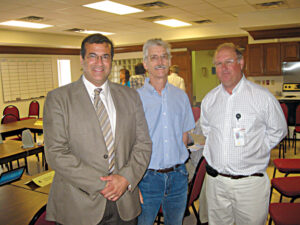
Citizens Forum Speakers (l-r): Rodolfo Montero, IBWC Area Operations Manager; Dr. Hudson DeYoe, Citizens Forum Co-Chair; Dr John Goolsby, Research Entomologist, U.S. Department of Agriculture
“Many Questions, Few Answers”
The recent scheduled meeting of the International Boundary and Water Commission citizen forum at the Mercedes IBWC headquarters elicited many testy questions from the audience with few satisfactory answers. A room full of frustrated area farms and Valley city managers and planners wanted to know what the government was going to do get stored Mexican water into the Rio Grande during this current, severe drought.
The program began with an in-depth retracing of the two water treaties that have defined the rights and obligations of both parties to the agreements by Sally Spenser. Spenser is the Secretary of the United States International Boundary and Water Commission. She spoke from her headquarters office in El Paso, Texas. It was a live, two-way video presentation to the crowd gathered at the Mercedes IBWC headquarters.
She explained the Convention of 1906 and the International Water Treaty of 1944. Both of these treaties regulated water releases flowing in the Rio Grande from El Paso/Ciudad as they flowed past cities on both sides of the river. The Treaties specified that the two nations are obligated to jointly share the water.
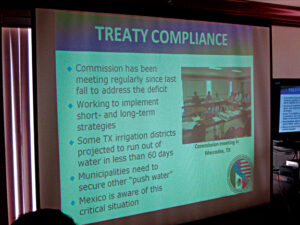
Treaty Compliance slide during Power Point presentation from El Paso.
Someone in the audience raised the point that those treaties were made before both countries started building dams to store their rainwater. They were made before the post-World War II, explosive population, agriculture and industrial growth on both sides of the border. “So, Mexico and the United States are competing for the same reduced flows of water,” the questioner stated, adding, “What is the government doing about it to protect the rights of Texas farmers and businessmen? Some cities are already restricting water us, and Raymondville and Lyford are being forced to buy expensive “Push Water.”
Spenser said that by law, we can’t demand compliance from Mexico. She assured that her department is trying to get more water releases all the time. “We have urged Mexico to release water from their dams–they have been slow,” she said. “In the past, we have been bailed out by opportune storms, but we can’t depend on that as our long-term strategy.”
Brad Cowan, Texas A & M County Extension Agent-Agriculture expressed concern about 9 proposed new dams to be built in Mexico. The question was what is the government doing about these questions that worry Texas citizens. Her answer was: “That is a very real question, we do not know if the State Department is communicating with the executive branch.
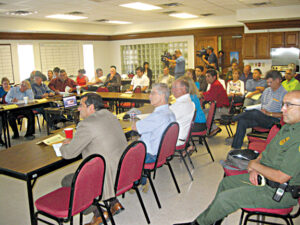
Interested Citizens crowded the USIBWC Conference Room to hear latest report on the South Texas water woes.
There is to be a joint meeting soon between the two heads of the Mexican and American presidents. We’ll learn more then.” Then she added, “There is no easy solution for a serious water problem for South Texas and Mexico.”
“Yes,” she said in her answer to a question from the audience, “the sequester is affecting us in the IBWC. It has reduced the money available for maintenance of waterways and improvement projects. We hope the meeting of the presidents before our next meeting next Fall in Mercedes will provide all of us the answers to your questions.”
Any reader wanting more information about the water problems of South Texas is invited to contact the USIBWC in Mercedes at (956) 565-3150. They are located approximately 1.5 miles south on Mile 2 W. Then turn left on Golf Course Road to the marked USIBWC offices on the left.

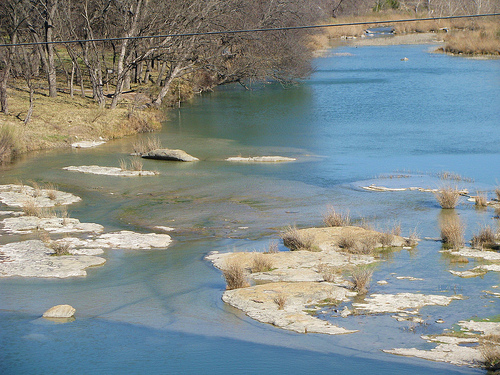
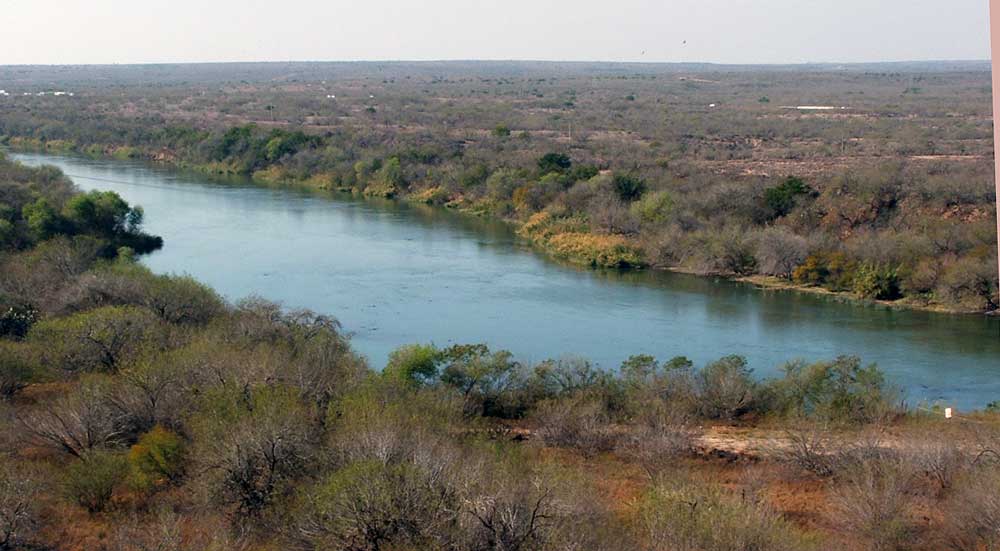



One Comment